Stephanie M.
I'm a content writer and novelist who loves books, writing, theater, and my cat. I have published two novels and traveled to London and Paris.
Columnist III
- Plebian Penman
- Common Writer
- Aristocratic Author
- Noble Scribe
- Lurker
- Pssst
- Hand Raiser
- Vocal
- Outspoken
- Extrovert
- Center of Attention
- Forms a Crowd
- Sharp-Eyed Citizen
- Town Watch
- Detective Deskman
- Penman Patrol
- Forensic Fiend
- Motivational Columnist
- Motherboard
- Composition
- Literary Art
- Referencer
- Actor
- Successful Pilot
- Animator
- Animaniac
- Well Read
- Chaptered Mind
- Art Collector
- Article of the Month
- ?
- Articles
40 - Featured
36 - Comments
711
- Ext. Comments
338 - Processed
191 - Revisions
188
- Topics
81 - Topics Taken
5 - Notes
248
- Topics Proc.
81 - Topics Rev.
19
- Points
13322 - Rank
4 - Score
9163
Latest Articles
Latest Topics
How the Rugrats Reboot Will Influnece TelevisionOn May 27, a Rugrats reboot featuring CGI animation, new character voices, and adventures with a distinct 21st-century flavor will premiere on Paramount Plus. Some fans of the original Rugrats are eager to experience the reboot and compare/contrast, while others are skeptical at best. No matter what side you're on though, there's no denying this reboot will influence how people see the Rugrats franchise and perhaps, associated television (e.g., Nickelodeon). Discuss questions such as how the Rugrats reboot will influence these spheres, as well as the potential positives and negatives of the reboot itself. For example, how will the reboot's location on a streaming service change the viewing experience and relations to the characters and plots? Do you think kids or adults will be more invested in the reboot, and why? It seems many of the new adventures will take place in the babies' imaginations; is this a positive or negative move?
|
The Rise and Fall of Zynga Facebook GamesWhen Facebook first came out in 2007, social games came with it. Most of us played these games hoping to build connections with friends and improve our standing in fantasy worlds/virtual lives. One of the biggest provider of such games was Zynga. From Farmville to Cafe World to Hidden Chronicles, they churned out plenty of games with plenty of connections and worlds to explore. Yet in a few years, most of these games vanished. Hidden Chronicles, Cafe World, and others are now just Wikipedia pages, although you may find some Facebook groups still asking for the games to be brought back. Meanwhile, other games similar to these, such as Pearl's Peril, are either floundering or closed. Examine some of these games and discuss why they didn't last. Compare and contrast them to some games that are popular on social media now. Are the newer games easier? If yes, how? Are they more fun or satisfying? What problems might they still share with the old games? If older games were to return successfully, what improvements would they need to make?
|
Children's Historical Literature in a Cancel Culture WorldThis week, Slate.com's parenting column, Care and Feeding, ran a letter from the concerned parent of a school-age child. The child's majority-white class, led by a white teacher, had been reading Bound for Oregon as part of an Oregon Trail unit. This book, written in the '90s, contains the N word. (From all indications, the parent and student are white, also). The parent expressed concern because when they went to the teacher, she simply said she told the students the N word "is not a nice word," they did not have to say it (when reading aloud in small groups), and the class would discuss the word "later." However, the discussion had not happened, and the parent wondered whether to pull the child out of the class/school over the teacher's response. Unfortunately, Bound for Oregon is not the first historical kids' or YA book to contain this word or other slurs, nor is it the first kids may be required to read in school. In 2020, what is the best way to handle this? Is there any historical kids' and YA lit that stays true to its historical background without using slurs or outdated attitudes? Are those attitudes "necessary" or "object lessons"–in other words, would "cancelling" them deprive kids of so-called classics or needed info? Does the classroom makeup–the race of the students or teacher, orientations, ability levels, etc.–make a difference? If it does, at what point should related literature be introduced or handled (e.g., how should we handle Holocaust literature when the majority of a class is practicing Jewish? Should able-bodied students be required to read literature about disabled characters, when their school has a segregated special ed program)? Discuss.
|
Pending | Should What Not to Wear Reemerge from Television's Closet?In 2019, rumors circulated that the 12-season TLC hit What Not to Wear would get a reboot. As with many projects or rumored projects, this stalled during the pandemic, but now that the world is opening up again, the WNTW reboot might be a possibility. Some fans, and even Stacy London, have questioned how successful a 2020s reboot would be, though. Especially after a global pandemic, style seems more relative and fluid than it did in 2003 or 2013. The work-at-home phenomenon may mean the idea of "appropriateness for the workplace" has evolved or does not exist. Or on the other side of the coin, the pandemic's isolation and the changing face of style may mean people are actually more eager to be and feel "stylish" or "put together" again. What would, or should, a What Not to Wear reboot look like? Discuss what issues it should focus on, who might be good candidates for a new show, and whether it should stick with the old format or some aspects, such as "rules" for appropriate clothing, should be retooled.
|
The Portrayal of Young Black Women in YA LiteratureYoung adult literature has seen a needed explosion of Black protagonists lately, and particularly Black females. Many of these new protagonists are also involved in Black Lives Matter or similar, sometimes fictionalized, organizations. They may be involved with other fictionalized organizations like Innocence X (The Innocence Project), seeking justice for incarcerated loved ones. Some Black female protagonists also rap, blog, or otherwise create to have their voices heard, and face both support and backlash. Examine the voice and portrayal of the young Black woman in today's YA literature. Who is she? Is her representation fair and nuanced, or do a lot of her incarnations look the same (and why is that)? If you choose to discuss historical Black females, how are current fictional protagonists different from those written in past decades? What do Black female characters have in common, and how do they differ from each other as well as other races? Who are some of your favorites, and/or whose stories do you think today's young adults should read first if they're trying to gain an understanding of Black, female personhood?
|
Pending | Apocalyptic and "Rapture" Fiction for KidsIn the late '90s, Harry Potter burst onto the literary scene amid controversy. Many parents, Christians in particular, would not let their children read Harry Potter because of witchcraft motifs. However, when asked to provide alternative choices and reading assignments for their kids, some Christian parents advocated that they read series like Left Behind: The Kids. This caused confusion for teachers, administrators, and some other parents because Left Behind: The Kids runs on the premise that a group of teens must live on their own and survive a totalitarian, one-world government after their parents and younger family members disappeared with no explanation. Such a premise was deemed much scarier and sometimes more inappropriate than Harry Potter or similar books like Lord of the Rings, particularly because the teens were "left behind" due to a lack of religious belief (or the right kind of religious belief, as in, they knew *about* Christ but made no personal commitment to Him). Discuss how and when apocalyptic or "rapture" fiction is appropriate for kids. How young is too young? How should writers handle, or not handle, the content? How might religious writers in particular get their message across without resorting to scare tactics and leaving possible conversion as a free choice? And, why do you think some parents or teachers are eager to let kids/students read this kind of fiction, but remain so cagey about magic-based fiction/fiction in that neighborhood? |
Children's Animation and "Bad Behavior"A recent social media meme reads, "I heard a woman say she won't let her kids watch Peppa Pig because it encourages bad behavior like jumping in puddles. I saw Road Runner and haven't blown up anyone yet." Laughs aside, and whether the account is true or not, this does bring up how concerned adults have become about children's behavior, where that concern is coming from, and when that concern is or isn't justified. For instance, there are parents who sincerely believe Peppa Pig is a bad influence. Others have excoriated every series from Caillou (whiny, bratty behavior) to Fancy Nancy (melodrama) to Sofia the First, Elena of Avalor, and The Lion Guard (too much emphasis on royalty, princess mentality). Is children's animation actually encouraging bad behavior, or do adult audiences focus too much on instances of normal childlike actions? Do any of today's animated shows have good messages, about behavior or anything else, and what are they? Which animations are the best and worst when it comes to presenting characters and behavior kids should emulate? Discuss.
|
The Evolution of the "Family Sitcom"Family sitcoms, also known as domestic comedies or dom coms, have existed since Leave it to Beaver, Father Knows Best, and My Three Sons, which aired around the 1950s. In the ensuing 70 years, the family sitcom underwent plenty of growth and change. Simple domestic problems that could be solved in 22 minutes with commercials gave way to edgier and more realistic family-centered plotlines. Traditional nuclear families made room for single, adoptive, LGBTQ , and other "non-traditional" parents (ex.: Henry Warnamont of Punky Brewster, a bachelor senior citizen, or the grown-up incarnations of Stephanie Tanner and Kimmy Gibbler, who raise their kids while raising others' in the same house as their patriarchs did before them. Examine the evolution of the family sitcom using a few of your favorites. You can discuss changes in family dynamics or plotlines (e.g., plotlines about keeping virginity vs. plotlines about teen pregnancy, plotlines about avoiding racism vs. ones about becoming inclusive). You could discuss race, religion, disability, or other minority statuses as topics that are getting more attention. Other topics might include the parenting styles presented on different shows, how the humor has evolved, the expectations placed on adults and children, and so on. |
Latest Comments
| The Rise and Fall of the Narnia Film Series | |
Possibly both? | "The Ballad of Buster Scruggs" and the nature of Death |
@desire: What is it with girls and accents? I am an absolute sucker for an accent. Well, let me amend. I’m a sucker for an accent and will fall hard for one from the U.K. (Too much British TV growing up, I guess). | Bad Boys: Dark, Dangerous, Disturbing… and Delicious |
Agreed on the being intrigued, but not wanting the toxicity, esp. if you’ve lived it. But a tough guy with a soft spot for the ones he loves? Gimme! I once read a pirate story (not a bodice-ripper but kinda steamy), where the “bad boy” hero is seen snuggling his gray cat, Spyglass. As a proud, die-hard cat-lover, I absolutely melted. (It helped that he was pirating for positive reasons in the end). | Bad Boys: Dark, Dangerous, Disturbing… and Delicious |
I used to think I didn’t like bad boys…until I realized I did. 😉 It started with Mr. Rochester, it moved on to Snape (I didn’t read HP until adulthood, long story), that kinda morphed into a modern version of Dracula… Actually, maybe I should’ve expected it long before I wrote this list. When I was four, five, and six years old, I nursed crushes on characters like Count von Count from Sesame Street, Captain Hook, and briefly, Rooster Hannigan from Annie. In retrospect, I find two things. One, I definitely have a “type”–tall, dark, at least a bit broody, and preferably with an accent. Two, I have discovered my attraction to these “bad boys” often comes with a desire to redeem or comfort them. You could blame that on a lot of things–I grew up Christian, I’m a nurturer by nature, I love hurt/comfort scenarios, and I get upset when I feel like someone is being villainized when they might just be misunderstood (e.g., Rochester, Snape). But maybe it is just because, I was and still am the “good girl” looking for a challenge–if not too much of one. That is to say, I see this tendency in myself and as an adult, can say, “You do realize these guys are toxic, right? What you want is the dashing darkness with a healthy psyche.” Thus inspired, these are the types of heroes I try to create in my own writing or give more “goodness” in fanfiction. I also search for “healthier” bad boys in books these days. I have found several in historical fiction, and they tend to populate fairytale retellings. | Bad Boys: Dark, Dangerous, Disturbing… and Delicious |
@Rios: Probably. Still racist, though. | "The Ballad of Buster Scruggs" and the nature of Death |
Sounds like my dad. He tricked me and my mom into watching most of it, as well as a cousin visiting for the holidays. After Meal Ticket, we dropped out. | "The Ballad of Buster Scruggs" and the nature of Death |
@stacy: Agreed. Weird, disjointed, and in my opinion, pretty awful. | "The Ballad of Buster Scruggs" and the nature of Death |
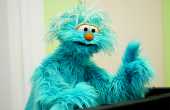
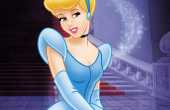

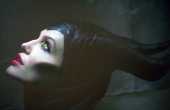
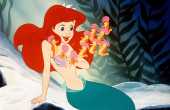


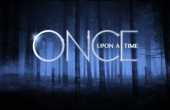
It really is an underrated jewel! I didn’t get to it until seventh grade (part of a fantasy unit; my teacher split the class into three different groups and we rotated books). I liked it so much, I read ahead, which was apparently this huge crime in her class, but I did not even care. I still think about those green and yellow rings, Jadis causing chaos in London, and of course, the Wood.